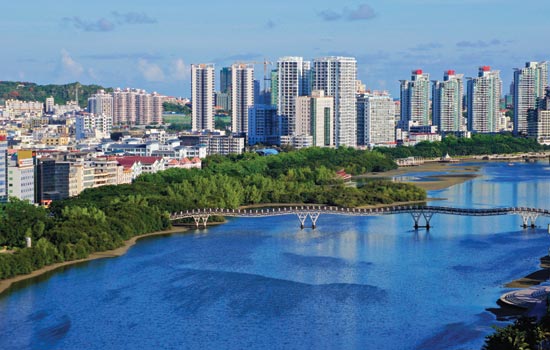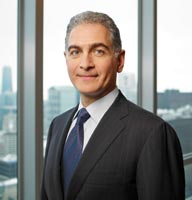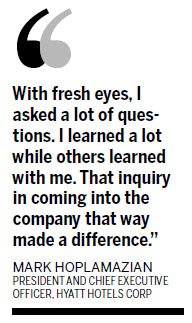|
 |
|
Hotels are booming in Sanya, Hainan province, China's top beach destination. By the end of 2010, nearly 70 international hospitality brands from 41 countries and regions had entered the Chinese market, managing about 20 percent of the country's high-end hotels and taking 80 percent of the profits. [Photo/China Daily] |
|
 |
|
 |
CEO considers options from many angles before deciding on investment
Sunny Bay is not on the itinerary for many visitors to Sanya, Hainan province - the country's top beach destination.
It is secluded from all the fuss and buzz at other bays. Yet it is ideal for Mark Hoplamazian, president and chief executive officer of Hyatt Hotels Corp.
"It is remote but absolutely beautiful," said Hoplamazian, who travels three or four times to China every year as new development and infrastructure increase.
Next year, two Hyatt hotels will open for business in Sunny Bay. Unique locations and iconic properties are the CEO's pride.
"We have great presence in prominent locations," said the 49-year-old, speaking in the meeting room of Park Hyatt, the tallest skyscraper in the central business district overlooking Beijing's Chang'an Avenue. It is near the Palace Museum and the China Central Television complex.
"It is central to the reputation of our brands. Staying at Hyatt property means people are staying at the best hotels in the city."
The Chicago-based hotelier currently operates 19 properties in the country under the brands of Park Hyatt, Andaz, Grand Hyatt and Hyatt Regency. More than 30 hotels are under development.
On the Chinese mainland, where there are 31 provincial-level capitals, the number is modest, said Yang Honghao, a researcher with China Tourism Academy.
Yang co-authored a development report on China's hotel industry. In it, he listed 60,000 hotels, of which 14,000 were star-rated.
By the end of 2010, nearly 70 international hospitality brands from 41 countries and regions had entered the Chinese market, managing about 20 percent of the country's top-end hotels and taking 80 percent of the profits.
Hoplamazian said competition comes down to quality of service.
"With a goal to be the most preferred but not the largest hotel brand in the world, Hyatt cannot waste time and effort on projects that will not be successful. Neither can we expand at the expense of providing a great experience for our guests," Hoplamazian said.
The CEO visited Beijing to attend the 2012 Beijing Architecture Forum. The event on May 24 coincided with the Pritzker Architecture Prize - often called the "Nobel Prize of architecture". The forum was co-hosted by the Beijing municipal government and Hyatt.
"Architecture and design can improve the lives of the people who visit our hotels, and live and work in the communities where we operate," Hoplamazian said.
